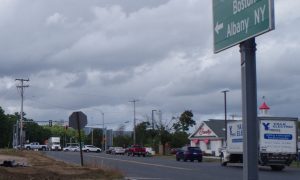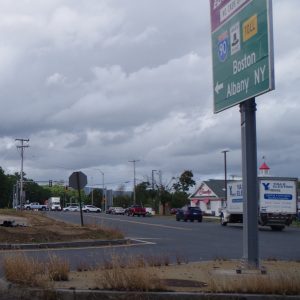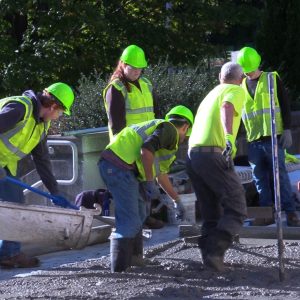WESTFIELD – A recent study conducted by a California-based think-tank has confirmed what residents of the Commonwealth have suspected for quite some time: Massachusetts has some of the worst bridges in the nation.
According to the Reason Foundation‘s 20th Annual Report on the Performance of State Highway Systems, Massachusetts’ percentage of deficient bridges ranks 44th in the nation, while it’s state highway system as a whole ranked 43rd in the nation in overall highway performance and efficiency, a minute improvement from the past two years when the Bay State was ranked 44th overall.
According to Reason, Arizona, Nevada and Minnesota ranked in the top three nationally as having the fewest deficient bridges, while North Dakota, Kansas and Wyoming ranked as having the three best, most cost efficient overall highway systems in the country.
Pennsylvania, Hawaii and Rhode Island were found to have the most deficient bridges, with Hawaii, Rhode Island and Alaska ranking as the three worst overall highway systems.
Additionally, according to Reason, Massachusetts taxpayers also bear a larger brunt of the state’s road miseries than almost any other state, as the Commonwealth ranks 47th in administrative costs per mile, spending six times more per mile than the national average. It also earns the unenviable mark of 48th in total disbursements per mile, spending 4.4 times the national average.
“Massachusetts is trying,” said Westfield’s City Engineer Mark Cressotti, while also praising the efforts of state government, specifically Governor Deval Patrick. “(Fixing highways) is what is needed.”
Cressotti want on to say that this issue is not unique to the Commonwealth.
“All across the country, the investment in roads and bridges is way below what it should be,” he said. “The world has changed. It isn’t the 1950s anymore, when these highways were built. ”
The state’s lousy Reason ranking for bridge deficiency is an obvious cause for concern on the part of MassDOT. Spokesman Michael Verseckes, who, through further research on behalf of his department, explained that Reason’s evaluation of the Commonwealth is only partially justified.
“From what we can tell, the Reason study utilized information gained in 2009,” said Verseckes from MassDOT’s Boston headquarters Wednesday. “And since 2009, this department has changed quite a bit, combining with the highway department, the Turnpike Authority, and several other state transit agencies under the MassDOT umbrella.”
Verseckes said that, since 2009, the Commonwealth’s Department of Conservation and Recreation’s Accelerated Bridge Program has completed over 120 renovation projects, almost half the bridges in the state.
“We divide our bridges into two groups, the overall number and the bridges that are Accelerated Bridge Projects, such as the bridges on the Turnpike and the Tobin Bridge in Boston,” said Verseckes. “From our perspective, we can’t tell if they’re taking these factors into account. Massachusetts has come leaps and bounds since ’09.”
The city of Westfield has eleven bridges that have been deemed “functionally obsolete” by the Department of Transportation, a term designated to bridges which are narrower than their roads, indicative of older structures.
Such structures include bridges on Shaker Road and Little River Road on State Highway-187, which cross Great Brook. The Little River Road bridge will be replaced as part of the Route 187 improvements.
The Routes 10 and 202 bridge locate at the transition of North Elm Street into Southampton Road, which crosses the Pioneer Valley Railroad tracks operated by the Pioneer Valley Railroad has also be identified by the DOT as being in need of repair.
In addition, MassDOT has deemed four bridges, two of which are municipally owned, as being “structurally deficient.” That list includes the bridge over Little River at the transition from Main Street to East Main Street on Route 20 and Pochassic Road (or Drug Store Hill) bridge which is currently being replaced.
Ten bridges are municipally owned, with four labeled functionally obsolete, while seven of the MassDOT’s 35 bridges also have that designation.
“We’re behind the eight ball,” Cressotti said, of the state’s care for its bridges and roadways. “But so is the rest of the country.”







